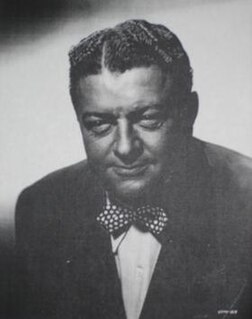This article needs additional citations for verification .(March 2019) (Learn how and when to remove this template message) |
| Kwaheri | |
|---|---|
 The Film That Stretches Your Eyes -- SEE Pygmies With Fantastic PHYSICAL ENDOWMENTS! | |
| Directed by | David Chudnow Thor Brooks |
| Produced by | Kroger Babb |
| Starring | Les Tremayne |
| Distributed by | Hallmark Productions |
Release date |
|
| Country | United States |
| Language | English |
Kwaheri, also known as Kwaheri: Vanishing Africa or Kwaheri: The Forbidden, is a 1964 mondo film directed by David Chudnow and Thor Brooks. The film was a pseudo-documentary about vanishing native tribes in Africa. Kwaheri means Goodbye in Swahili.
A mondo film is an exploitation documentary film, sometimes resembling a pseudo-documentary and usually depicting sensational topics, scenes, or situations. Common traits of mondo films include portrayals of foreign cultures, an emphasis on taboo subjects, and staged sequences presented as genuine documentary footage. Over time, the films placed increasing emphasis on footage of the dead and dying. The term shockumentary is also used to describe the genre.
A mockumentary or docucomedy is a type of movie or television show depicting fictional events but presented as a documentary.

Africa is the world's second largest and second most-populous continent, being behind Asia in both categories. At about 30.3 million km2 including adjacent islands, it covers 6% of Earth's total surface area and 20% of its land area. With 1.2 billion people as of 2016, it accounts for about 16% of the world's human population. The continent is surrounded by the Mediterranean Sea to the north, the Isthmus of Suez and the Red Sea to the northeast, the Indian Ocean to the southeast and the Atlantic Ocean to the west. The continent includes Madagascar and various archipelagos. It contains 54 fully recognised sovereign states (countries), nine territories and two de facto independent states with limited or no recognition. The majority of the continent and its countries are in the Northern Hemisphere, with a substantial portion and number of countries in the Southern Hemisphere.
As the film focused more on the controversial aspects of the tribal societies, it gained the attention of exploitation filmmakers, including Kroger Babb, whose Hallmark Productions distribution company acquired the American rights.
An exploitation film is a film that attempts to succeed financially by exploiting current trends, niche genres, or lurid content. Exploitation films are generally low-quality "B movies". They sometimes attract critical attention and cult followings. Some of these films, such as Night of the Living Dead (1968), set trends and become historically important.

Howard W. "Kroger" Babb was an American film and television producer and showman. His marketing techniques were similar to a travelling salesman's, with roots in the medicine-show tradition. Self-described as "America's Fearless Young Showman," he is best known for his presentation of the 1945 exploitation film Mom and Dad, which was added to the National Film Registry of the Library of Congress in 2005.

The United States of America (USA), commonly known as the United States or America, is a country composed of 50 states, a federal district, five major self-governing territories, and various possessions. At 3.8 million square miles, the United States is the world's third or fourth largest country by total area and is slightly smaller than the entire continent of Europe's 3.9 million square miles. With a population of over 327 million people, the U.S. is the third most populous country. The capital is Washington, D.C., and the largest city by population is New York City. Forty-eight states and the capital's federal district are contiguous in North America between Canada and Mexico. The State of Alaska is in the northwest corner of North America, bordered by Canada to the east and across the Bering Strait from Russia to the west. The State of Hawaii is an archipelago in the mid-Pacific Ocean. The U.S. territories are scattered about the Pacific Ocean and the Caribbean Sea, stretching across nine official time zones. The extremely diverse geography, climate, and wildlife of the United States make it one of the world's 17 megadiverse countries.






